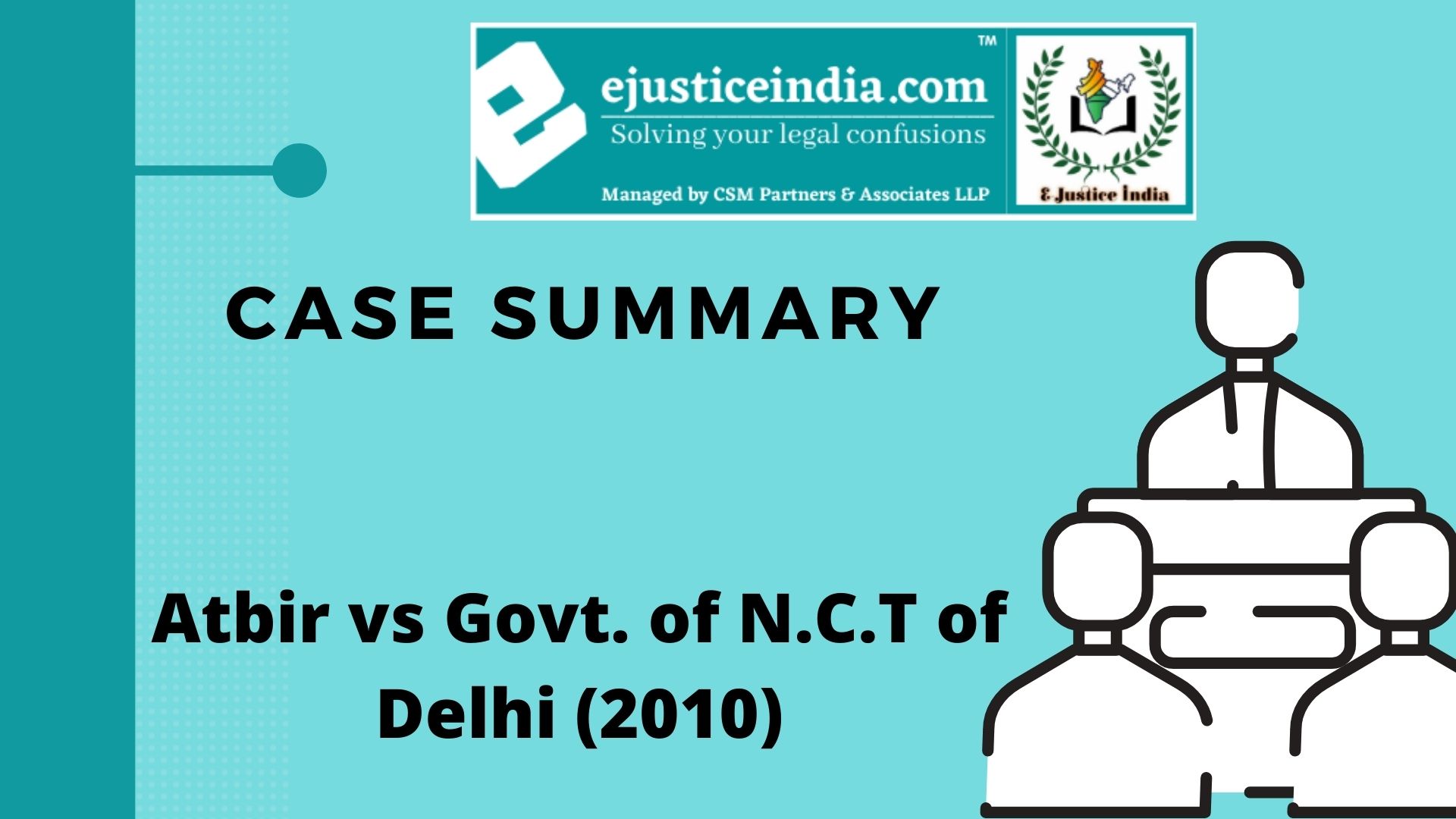Case Summary : CHUNDA MURMU VS. STATE OF WEST BENGAL
CASE NAME: CHUNDA MURMU VS. STATE OF WEST BENGAL WATERS
EQUIVALENT CITATION: AIR 2010 SC 2160
BENCH: SWATANTER KUMAR AND RAJAN GOGOI JJ.
PROVISION INVOLVED: Section 201 and 302 of Indian Penal Code, 1860.
INTRODUCTION
The Section 302 of the Penal Code lays down the punishment for the offence of Murder. The punishment prescribed under the provision is Life imprisonment or death sentence. While giving the verdict for death sentence the Hon`ble Court must keep in mind that (1) the murder is extremely brutal, ridiculous, and reprehensible in nature, (2) the magnitude of the crime is at a large scale, (3) the motive of the accused were cruelty.
Section 201 of the Code on the other hand refers to causing any form of disappearance of evidence and giving false information with an intention to screening the offender from legal punishment. In this case (1) evidence must be disappeared from the place where the crime took place, (2) accused must have knowledge of the offence committed and (3) there should be intention on the part of the accused to disappear evidence to screening the offender from legal punishment.
FACTS IN BRIEF
The present appeal was filed against judgment passed by the Hon`ble High Court affirming conviction of the accused (appellant in the case) as recorded by the Trial Court under the Indian Penal Code.
Anil (P.W.7) lodged a complaint in the Police station to the effect that his sister – Kamla, who was married to the accused Appellant for about six years, had been missing since 10th of March, 1990. It had been further stated, in the complaint that though the complainant had searched for his sister her whereabouts were not known and that the complainant suspected that she was murdered by her husband – Accused (appellant).
In course of the investigation the accused was arrested on 15th of March, 1990. Accused while is custody made a statement that he had murdered his wife and had kept the dead body concealed in the khuti ghar of one Charan Murmu, the father of the accused – appellant.
The father of the accused died and the charges were framed against the accused, he had pleaded to the charges framed and claimed to be tried.
ISSUE RAISED
Whether on the basis of the said circumstances the conviction and sentence of the accused – appellant is tenable in law?
JUDGMENT
It was held in the instant case, there were no eye witnesses to occurrence and prosecution had sought to bring home charges levelled on basis of certain circumstances. Accused and deceased were married and there were frequent quarrels between the two. Also, statement of the accused leading to recovery of dead body was made while he was in custody and same was in presence of police officers. Recovery of the dead body was a fact which was admissible in evidence under Section 27 of the Act.
Further, absence of identification the accused at time of recovery of dead body would not affect core of prosecution case. All incriminating circumstances relevant to the case had been put to the accused and no material irregularity causing any prejudice to the accused could be attributed to prosecution case.
All incriminating circumstances relevant to case had been put to Accused and no material irregularity causing any prejudice to Accused could be attributed to prosecution in this regard. Therefore, all circumstances relied upon by prosecution could be held to be proved beyond reasonable doubt. Lastly, the action of Accused in bringing back his wife to matrimonial home from house of prosecution witness where she was living after leaving her matrimonial home could not attract necessary ingredients of either offence of kidnapping or abduction so as to attract Section 364 of the code. Hence, conviction under Sections 302 and 201 of Penal Code was maintained whereas conviction under Section 364 of IPC was set aside. Appeal partly allowed.


